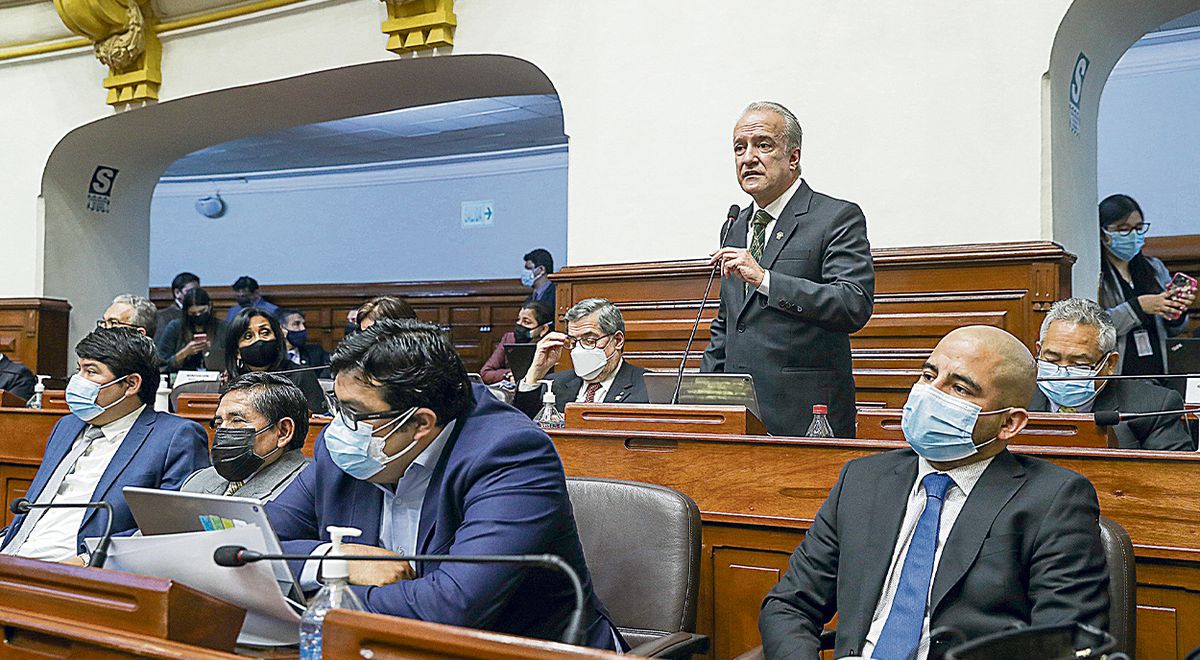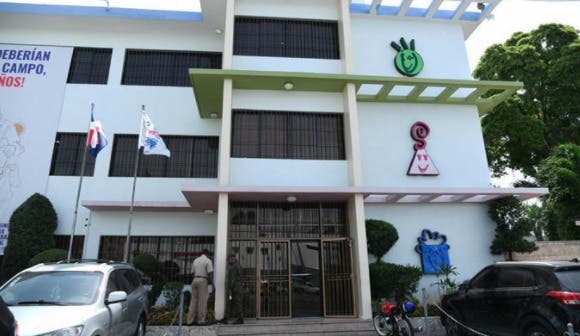The president of the Commission of Constitution of the Congress and congressman of Fuerza Popular (FP), “Nano” Warscheduled for this Tuesday two bills on advance of general elections. one of is of dignified streetfrom Podemos Peru, and another from Susel Paredesof Integrity and Development.
With this, Congressman Guerra fulfilled one of the demands of the leader of his party, Keiko Fujimori: debate the proposal. Fujimori, in addition, had invoked days ago that there be a consensus to approve this reform. However, the picture is different there.
There is a huge distance between initiating the debate and promoting its approval. And this is known by the head of the Constitution Commission, “Nano” Guerra. The background of Keiko Fujimori’s party directing this commission allows us to see the behavior of the orange caucus. In this period, when there were discussions of important reforms, they ended up shelved or rejected due to the maneuvers of Fuerza Popular.
Last year, the then Prime Minister Mirtha Vásquez proposed, on behalf of the Executive, a bill to regulate the presidential vacancy and the issue of trust. The Constitution Commission, then chaired by the Fujimorista Patricia Juárez, allowed him to support the proposal, but to date there is no opinion.
When the Executive also presented an initiative for the Constituent Assembly, the Juarez commission also allowed Prime Minister Aníbal Torres to support the text. However, in less than two weeks, this commission issued an opinion that sent such a reform to the file.
For this reason, when “Nano” Guerra announces the beginning of the debate on the PLs for early elections, the following questions remain in the air: When will the ruling be ready? What is the position of the presidency of the Constitution Commission?
The Republic posed these questions to the congressman, who answered the first, but avoided advancing an opinion in the second: “That will depend on the members (of the commission) and on the feasibility of the project both constitutionally and politically. We will listen to your proposals tomorrow”.
The paths of this constitutional reform
As the advancement of elections implies a Constitutional reformthere are two paths for its approval: that it receives the green light from Congress with 87 votes in favor in two plenary sessions of different legislatures or that with 66 votes in favor a referendum is called so that the citizens decide if they all leave – Executive and Legislative -.
So far, there are 87 votes in favor. Vladimir Cerrón, secretary general of Peru Libre, was against this exit. The audios of César Acuña uncovered that in Alianza Para el Progreso this project is not a priority either. In Avanza País and Renovación Popular they bet on the vacancy. While Acción Popular has not yet adopted an agreement.
Despite the fact that Keiko Fujimori is in favor of new elections, none of her congressmen has publicly expressed support for the initiatives of Calle or Paredes. Even the FP legislator and first vice president of Congress, Martha Moyano, stated that the vacancy must first be promoted and, if it fails, only by advancing the elections.
In the midst of these discrepancies and ambiguities, and the lack of votes, the second path – that of approving this reform via referendum – is more solid.
“Advancing elections is the fastest way. We are in a position to get 66 votes and submit my project to a referendum. Popular Force has already joined the consensus, we are waiting for the other benches to join,” tweeted Digna Calle, from Podemos Peru.
Similarly, on Sunday the 4th, Fujimori Higuchi opined: “The early elections is a democratic mechanism with a change in the Constitution that, in case you didn’t know, could be easier and faster. With 66 votes and a referendum that the people confirm, we will end the government of Pedro Castillo and his serious damage to Peruvians,” he tweeted.
When would the eventual elections be?
The constitutionalist Omar Cairo explains that, if the approval of these projects is achieved in two legislatures, with 87 votes in each one, the elections would be in the second half of next year. He considers, therefore, that the fastest way is for the plenary to approve this law with 66 votes and a referendum be called so as not to wait for the second legislature. “The path is in a legislature with 66 votes plus a referendum, that would allow the elections they can be given between March,” he said.
Cairo specified that the Executive cannot observe a norm for advancing elections because it is a constitutional reform.
In the debate on new elections, not only does constitutional law come into play, but also electoral law. And in the legislation of the elections there are terms that are intangible. “The advancement of elections can be through a referendum, but the regulation of that electoral calendar must be adjusted to the current legislature,” says Jorge Jáuregui, a lawyer on electoral issues.
The electoral law states that the elections are called 270 days in advance. This means that the new electoral process does not take place immediately, after the eventual approval of the reform through Congress or popular consultation.
For this reason, says Jáuregui, in the best of cases, the new elections would be at the end of 2023, respecting the electoral deadlines. The calendar could only be shortened, he clarifies, through a transitory provision approved by the plenary session.
It is a tedious process, according to both jurists. But the main obstacle, sources in Parliament comment, will not be time, but the lack of political will.
















